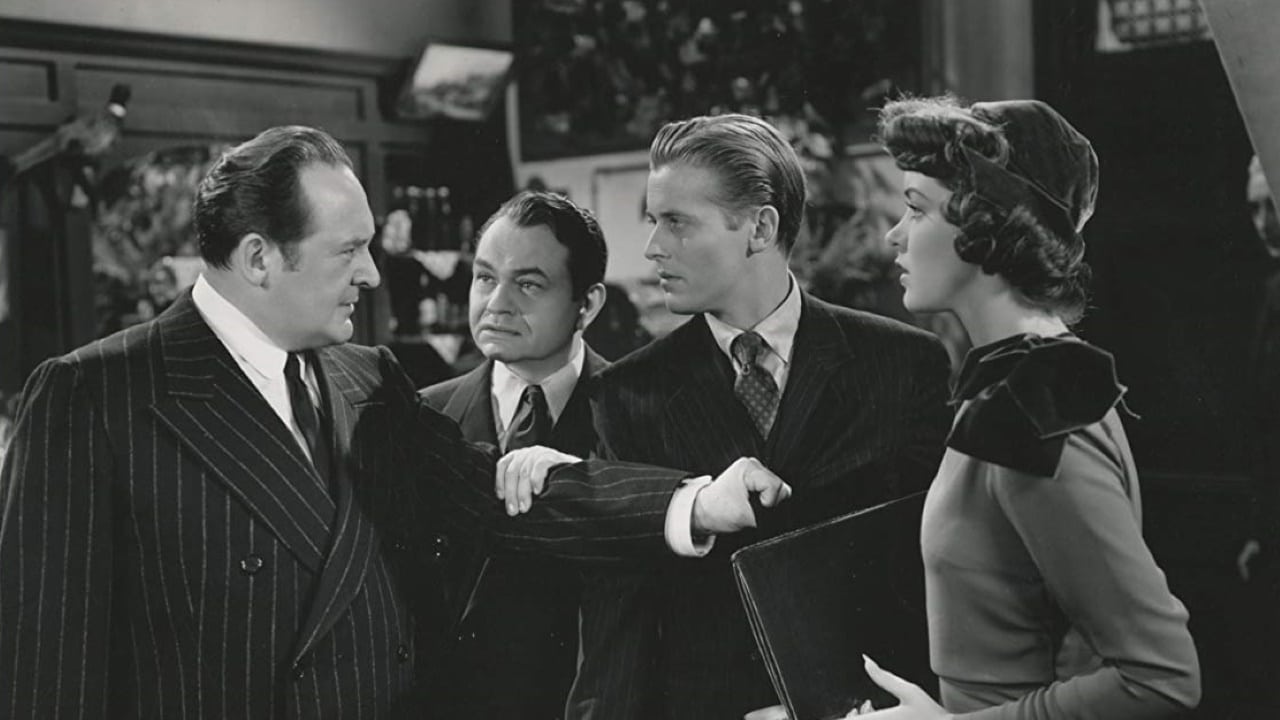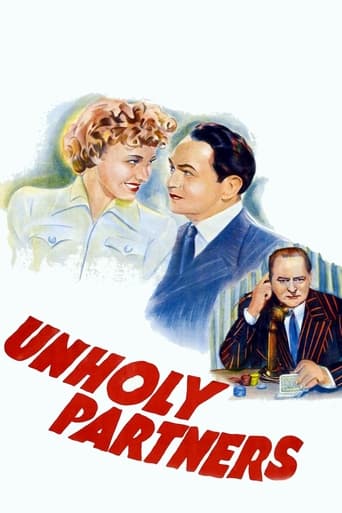YouHeart
I gave it a 7.5 out of 10
Solidrariol
Am I Missing Something?
Dynamixor
The performances transcend the film's tropes, grounding it in characters that feel more complete than this subgenre often produces.
Billie Morin
This movie feels like it was made purely to piss off people who want good shows
vincentlynch-moonoi
I always liked Edward G. Robinson, but I don't like the typical crime dramas he so often appeared in. So when I found him to not be a gangster, I reveled in his film persona. This is one of those films. Yes, there's an element of crooks here...but it's not Robinson; Robinson is, in fact, the good guy here.And, this is a better film than I had anticipated. Robinson plays a hard-boiled newspaperman who, after WWI, starts his own newspaper. He plays a bit fast and furious with the facts, and sometimes makes news happen, but at heart he tries to make things right. Unfortunately, in order to start his own newspaper he had to take in a silent partner -- a "businessman" who is more a hood than businessman -- Edward Arnold. Ultimately, Robinson deeply regrets the partnership and decides to go after Arnold...at his own peril, and at the peril of one of his young reporters.It's good, but it's not all good. Unfortunately, Laraine Day (who is sort of secretly in love with Robinson) lets us down with acting that is just blah through the first part of the film, but nearer the end of the film she does quite nicely. Lately I've seen Day in a number of films, and while once in a while I thought she was very good, mostly I am finding her to be just middling. But Robinson and Arnold make up for that with some fine acting.In terms of the supporting cast, Marsha Hunt, whom I didn't really recognize, but who had a fairly long career in film, does nicely as the girl in love with the young reporter, but who has cozied up to Arnold to advance her singing career and to try to save her father from scandal. William T. Orr does satisfactorily as the young reporter. Don Beddoe is good as one of the men in the newsroom.I can't decide whether I like the ending or not. If you're expecting a happy ending...well...you'll just have to wait and see...they keep you guessing until the very last minute.
Alex da Silva
Edward G Robinson (Corey) returns from the war and is offered his old job back at the newspaper he used to work for. However, he has bigger ideas and wants to run his own newspaper now. The only way he can get financing to start his business is to come to a deal with gangster Edward Arnold (Lambert). They become 50/50 partners in the business - the unholy partners of the title. Robinson is one of these do-gooder types who wants to clean up the city and so, when Arnold - his financier and number 1 gangster in town - tells him to back off from a story, he disobeys him coz he wants to see justice done. What a knob-head. He is basically begging to be killed off. Whether he does get what's coming to him is up to fate.This is pretty predictable stuff with a corny ending. Robinson is good as always but Arnold is better. Thank God he is in the film. He has a sort of Raymond Burr deep voice and big thuggery frame and makes a good baddie. The rest of the cast are OK, although William T. Orr (Tommy) is slightly annoying at times. The film is not particularly good and there is no need to see it again. It finishes and then you sling it onto the junk pile - if you have any sense. Robinson's character is unconvincing and the final line is pure cheesiness. It's not a disaster but there's not a lot to say about it. Everyone has done better and it's a forgettable affair.
bkoganbing
Fresh from World War I, Edward G. Robinson has all kinds of new ideas about his chosen profession of journalism. But his old newspaper won't see things his way. Not discouraged, but needing cash he gets it from Edward Arnold a gangster with whom he becomes Unholy Partners with.Although Arnold is at first a silent partner and gives Robinson a free hand with the paper, it's not a partnership that in any way can last. Robinson, and more particularly reporter William T. Orr, starts looking into the activities of Arnold's friends and later Arnold. And then Orr becomes interested in Laraine Day who is a nightclub singer that Arnold has taken a kind of lease out on.The whole film builds toward the inevitable showdown of Arnold and Robinson and the two really dominate the film, the other players barely getting any innings in their performances. Arnold is a very careful man in maintaining a respectable front and he sees the possibilities in controlling a large media outlet. Not unlike that other Arnold film character from 1941, D.B. Norton from Meet John Doe.Charles Dingle who is a favorite character actor of mine is in Unholy Partners. But he's in a very subdued role who Arnold has under his thumb by controlling Dingle's gambling debts. Dingle's not at all the arrogant and pompous man he usually plays. And I miss that.Robinson and Arnold make quite a good pair of matched adversaries. Unholy Partners showed they should have done more work together.
Svengali-2001
This film is not perfect, but it is gritty enough to be real, in the style that is more in keeping with films of the later 40s. The two Edwards play well off each other, and it is a shame that they didn't make more films together. Although it was not a strong film for the female cast, it did give Laraine Day and Marsha Hunt some scope to show they were more than the dolly-birds that many directors took them to be. Call me superstitious, but three of the main cast were born in 1917 and all 3 lived to 2002, with the two lasses still going strong. Perhaps it is a sign that the director chose some strong actors to make this film hum along effectively. As to its portrayal of the paper business, it is highly contemporary in its grasp of how media men prefer to make the news than report it. The very fact that Miss Hunt and her husband, Robert Presnell were allegedly blacklisted for their communist (for this read, Liberal) sympathies in the 1950s is an ironical grasp of the power of the press over any idea of truth or talent over power and influence. Mervyn LeRoy remains an icon of morally strong, but unsentimental film-making in what is often a candy-coated world. 9 Stars.

